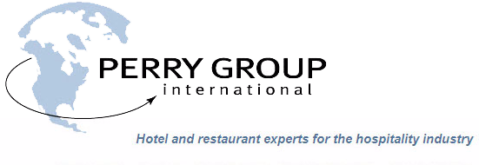Restaurants and bars that are in default on their bank loans, not paying their investors or have business partner disputes, often require a neutral party to be brought in to preserve the assets and improve the income, such as court appointed receivers or a restaurant turnaround consultant. Like hotel receivership services and hotel turnaround services, restaurants are labor and revenue transaction intensive and need experienced and competent management and trustworthy employees to succeed. Most often, restaurants and bars in default require a turnaround, or repositioning and possibly an eventual sale of the business to meet its obligations to creditors and investors. Many lenders and investors are unaware of the many pitfalls that arise with these loans and investments. First, the operating profit margin before debt service is often low for restaurants, such as independent non-franchise operations, particularly in the table-service category, because of high labor costs and poor procedures. In bars, those margins are higher but there is a higher incidence of theft and drink giveaways which reduce the daily income. Secondly, and a significant money issue common to both, is diversion of the credit card receipts to another bank account that goes directly to a restaurant bar general manager or its managing partner. Skimming of cash flows is easy in these businesses without adequate controls and audits, especially with food and beverage operations that use outdated paper customer bills, non-monitored computerized systems and service staff that are not observed periodically by outside spotters. However, the decision, on whether the use of court appointed receivers, a restaurant turnaround consultant or a combination of both is most appropriate to cure defaults and losses, requires certain considerations as the lender or investor. In a default scenario, where the restaurant or bar has an unpaid bank loan, the lender often has the ability as part of its loan docs to use a court receivership to take over the business and provide remedies to satisfy the debt. However, investors, who have not been paid back, may be less secured and command minimal power as members of a limited liability corporation and opt to hire outside troubleshooters. In either scenario, there are limitations using one or the other. Using court appointed receivers to takeover a restaurant or bar to remedy the default and control the assets and business provides a lender or investor the most promise of action because the receivership estate is under the direction and control of the court. But, this action may incur added legal fees if all of the involved parties are not cooperating or there are extenuating circumstances. However, unless the court receiver is experienced in saving a failing restaurant or bar, there may be added costs to retain another restaurant turnaround consultant. Hiring only a restaurant expert without the authority of the court might incur less costs and fees initially. But it may provide less control of the restaurant or bar and affect results if the party causing the default or losses still retains some control. Ultimately, the adage “pay now – or pay later” results and you end up paying more in costs and fees than if both a receiver with restaurant expertise is involved at the outset.
Share this post





